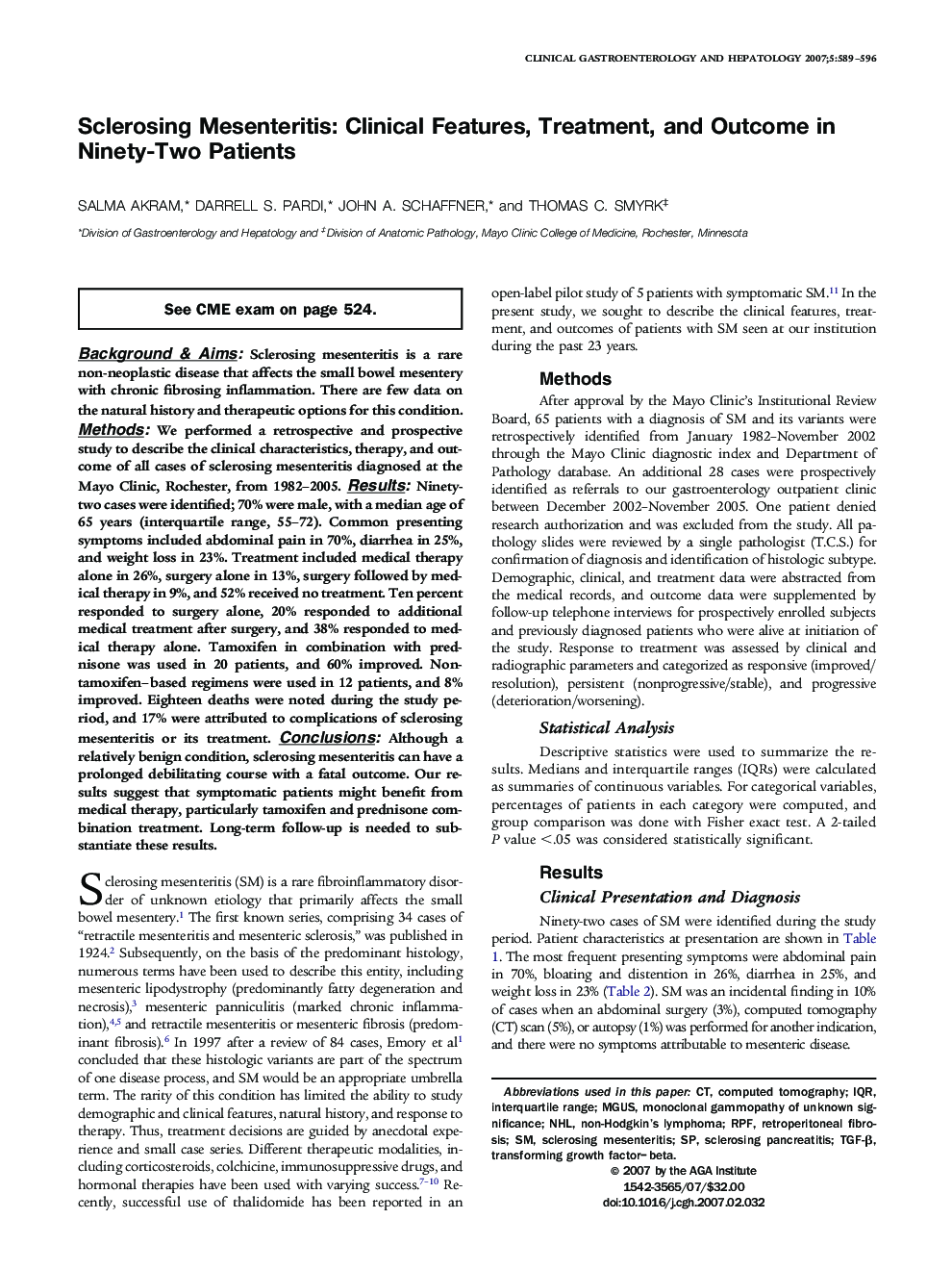| Article ID | Journal | Published Year | Pages | File Type |
|---|---|---|---|---|
| 3285589 | Clinical Gastroenterology and Hepatology | 2007 | 8 Pages |
Abstract
Background & Aims: Sclerosing mesenteritis is a rare non-neoplastic disease that affects the small bowel mesentery with chronic fibrosing inflammation. There are few data on the natural history and therapeutic options for this condition. Methods: We performed a retrospective and prospective study to describe the clinical characteristics, therapy, and outcome of all cases of sclerosing mesenteritis diagnosed at the Mayo Clinic, Rochester, from 1982-2005. Results: Ninety-two cases were identified; 70% were male, with a median age of 65 years (interquartile range, 55-72). Common presenting symptoms included abdominal pain in 70%, diarrhea in 25%, and weight loss in 23%. Treatment included medical therapy alone in 26%, surgery alone in 13%, surgery followed by medical therapy in 9%, and 52% received no treatment. Ten percent responded to surgery alone, 20% responded to additional medical treatment after surgery, and 38% responded to medical therapy alone. Tamoxifen in combination with prednisone was used in 20 patients, and 60% improved. Non-tamoxifen-based regimens were used in 12 patients, and 8% improved. Eighteen deaths were noted during the study period, and 17% were attributed to complications of sclerosing mesenteritis or its treatment. Conclusions: Although a relatively benign condition, sclerosing mesenteritis can have a prolonged debilitating course with a fatal outcome. Our results suggest that symptomatic patients might benefit from medical therapy, particularly tamoxifen and prednisone combination treatment. Long-term follow-up is needed to substantiate these results.
Keywords
Related Topics
Health Sciences
Medicine and Dentistry
Gastroenterology
Authors
Salma Akram, Darrell S. Pardi, John A. Schaffner, Thomas C. Smyrk,
